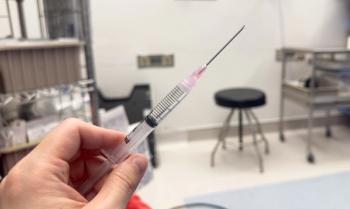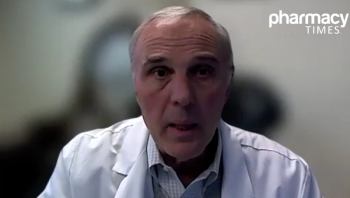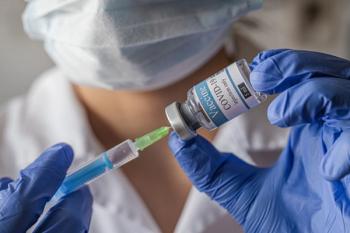
Explore the rising prevalence of diabetes in the US, its various types, and the critical role pharmacists play in patient care.

Explore the rising prevalence of diabetes in the US, its various types, and the critical role pharmacists play in patient care.

Shara Bialo, MD, emphasizes the critical role of autoantibody screening in early T1D detection, enhancing patient outcomes during American Diabetes Month.

RSV infections in multiple myeloma patients delay treatment but do not increase mortality, highlighting the need for further research on infection management.

Richard Kovacs, MD, underscores the pharmacist’s role in educating patients about sodium reduction, monitoring blood pressure, and ensuring safe transitions to low-sodium oxybate therapy.


Explore the risks of synthetic 7-hydroxymitragynine (7-OH) products and why natural leaf kratom is a safe alternative.

Although the incidence of vascular assess-associated infections (VAIs) was low, the incidence caused by noncuffed catheters (NCC) was high.

Continuous glucose monitoring (CGM) significantly enhances the detection of cystic fibrosis–related diabetes, outperforming traditional methods.

Research reveals a notable risk of invasive fungal infections in multiple myeloma patients undergoing BCMA-targeted CAR T-cell therapy, highlighting the need for vigilant monitoring.

Long-term benzodiazepine use has been linked to lasting cognitive impairments, underscoring the vital role pharmacists play in supporting safe deprescribing strategies.

Rajinder Shiwach, MD, MRCPsych, outlines how pharmacists can strengthen retention, patient education, and access to rapid induction strategies for opioid use disorder treatment.

Environmental factors significantly influence the rising rates of type 2 diabetes in children.

Richard Kovacs, MD, explains how switching from high-sodium to low-sodium oxybate led to meaningful blood pressure reductions and lower cardiovascular risk in patients with narcolepsy.

Rajinder Shiwach, MD, MRCPsych, discusses how rapid induction with extended-release buprenorphine improves patient retention and maintains comparable efficacy and tolerability to standard induction methods.

COVID-19 mRNA vaccines enhance immune checkpoint inhibitor effectiveness in cancer therapy, significantly improving survival rates for patients with advanced tumors.

The FDA approves a simplified single-injection treatment for ulcerative colitis, enhancing patient experience with monthly dosing convenience.

Oncologists increasingly embrace cell and gene therapies, yet barriers like cost and perceptions of risk hinder broader adoption.

Expert shares notable findings presented at the 2025 IMS Annual Meeting.

The FDA updates sotatercept's label, enhancing treatment options for pulmonary arterial hypertension and reducing severe clinical events.

Revumenib was approved for adults and pediatric patients 1 year and older with relapsed or refractory acute myeloid leukemia.

FDA approves belantamab mafodotin-blmf for relapsed or refractory multiple myeloma, enhancing treatment options and survival rates for patients with limited therapies.

Personalized cancer vaccines target tumor heterogeneity, enhancing immune responses and improving treatment outcomes in diverse cancer types.

Experts at ESMO 2025 highlight antibody-drug conjugates in HER2-positive metastatic breast cancer treatment.

Emerging biomarkers and targeted therapies are reshaping the landscape of lung cancer treatment and drug development.

Advances in targeted therapies, combination approaches, and novel treatment strategies are shaping the management of drug-resistant lung cancer.

Insights from ESMO 2025 highlight advancements in non-small cell lung cancer treatment, focusing on novel therapies and molecular diagnostics.

New data from the NATALEE trial reveals ribociclib significantly improves invasive disease-free survival in HR+/HER2– early breast cancer.

Adjuvant abemaciclib plus endocrine therapy significantly enhances overall survival in high-risk HR-positive HER2-negative breast cancer.

Durvalumab combined with FLOT shows significant survival benefits for patients with resectable gastroesophageal junction cancer, regardless of PD-L1 status.

Nivolumab plus chemotherapy and ipilimumab show significant long-term survival benefits for advanced esophageal squamous cell carcinoma.